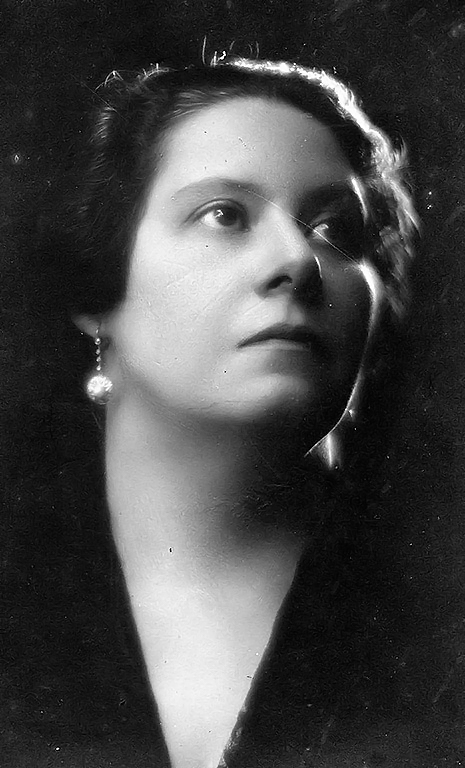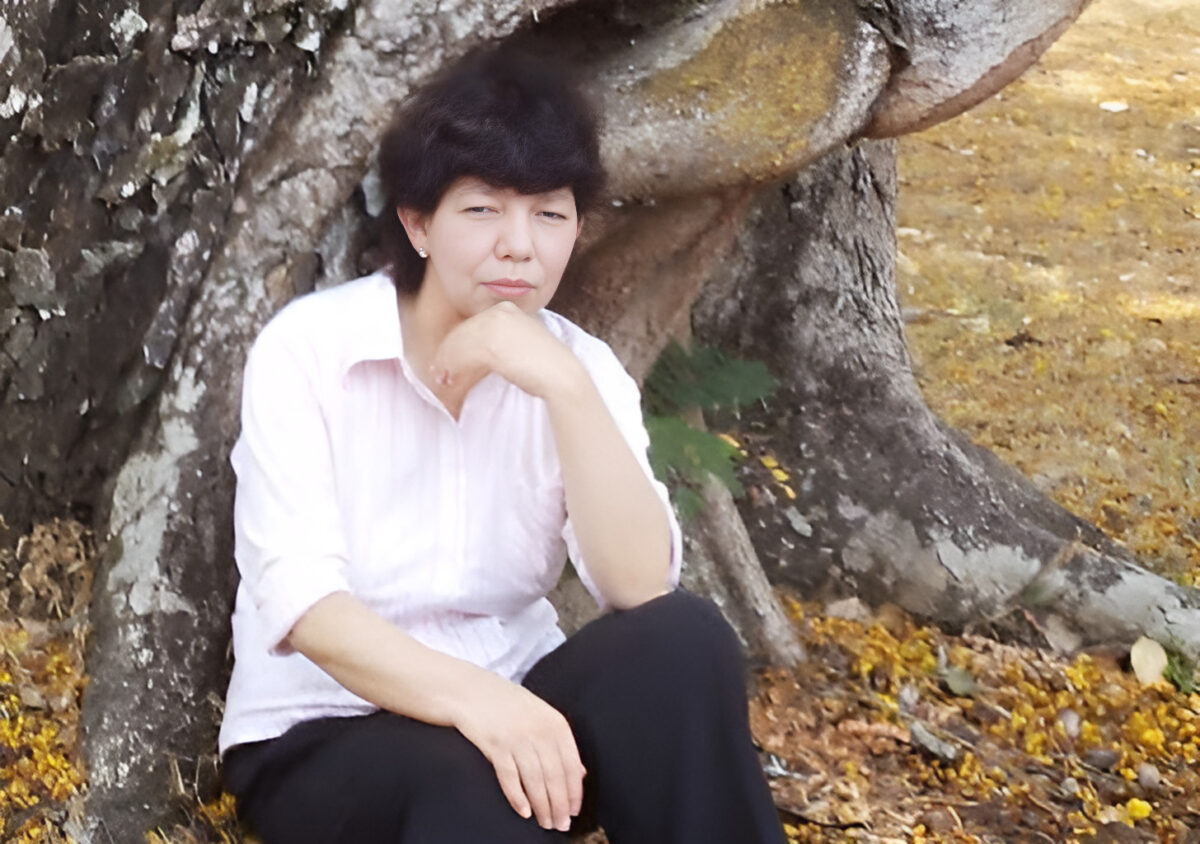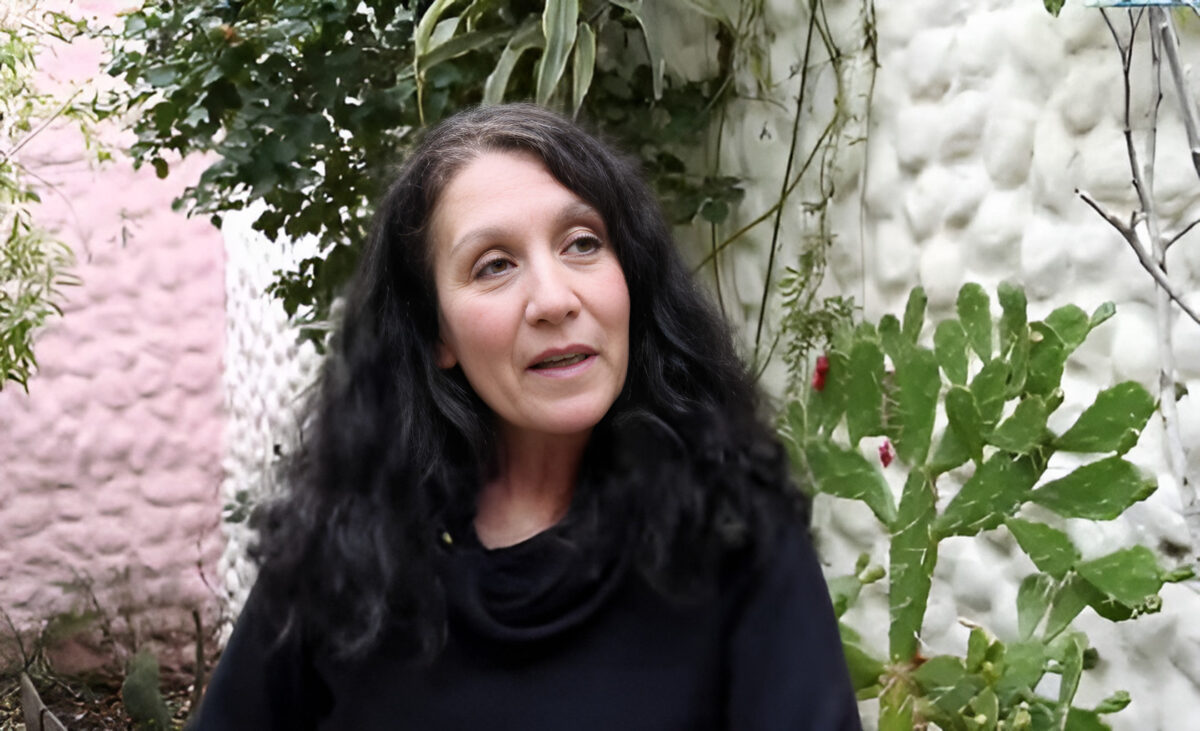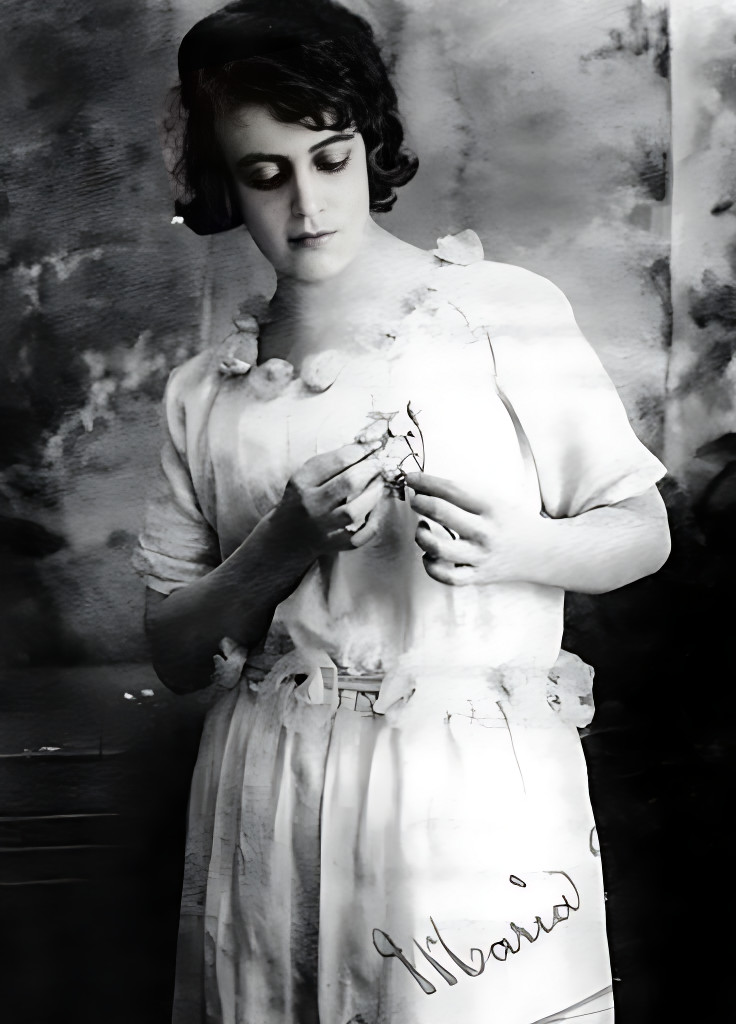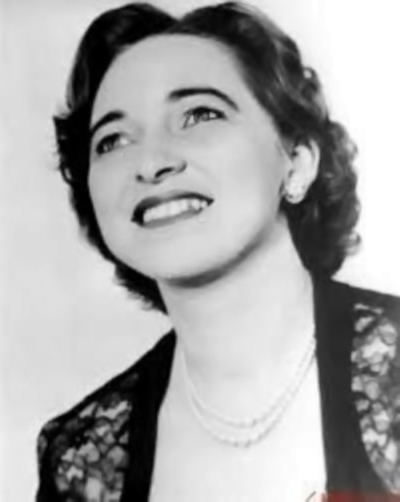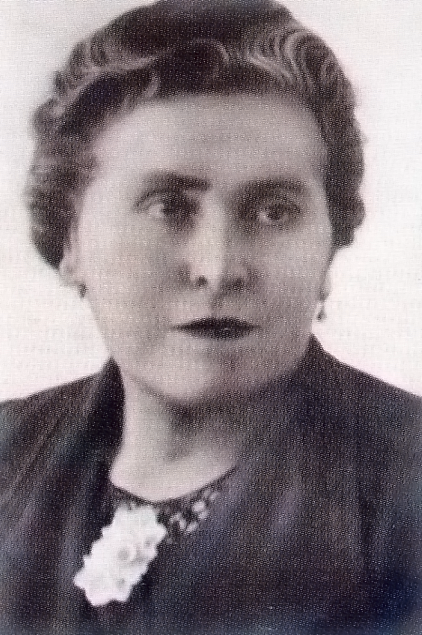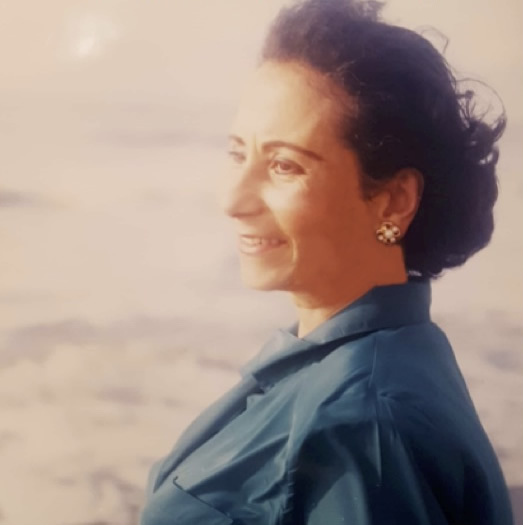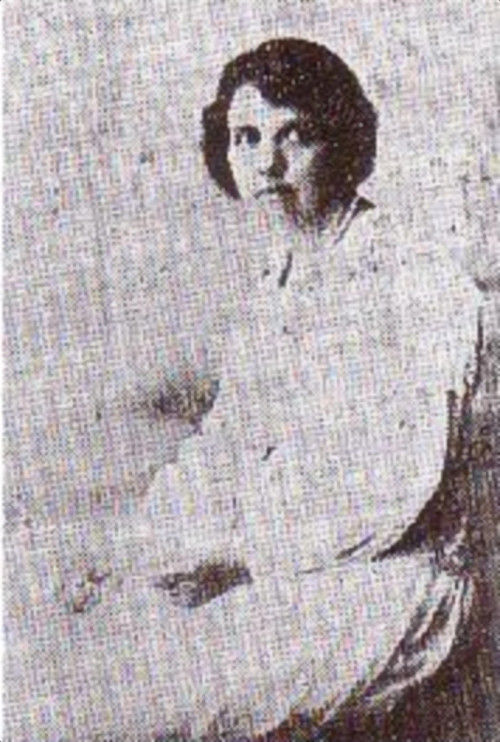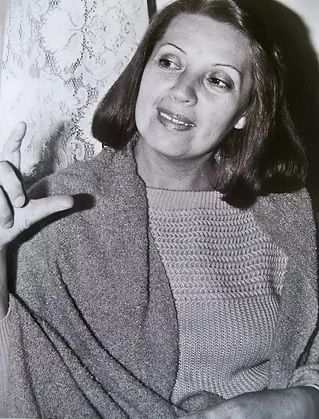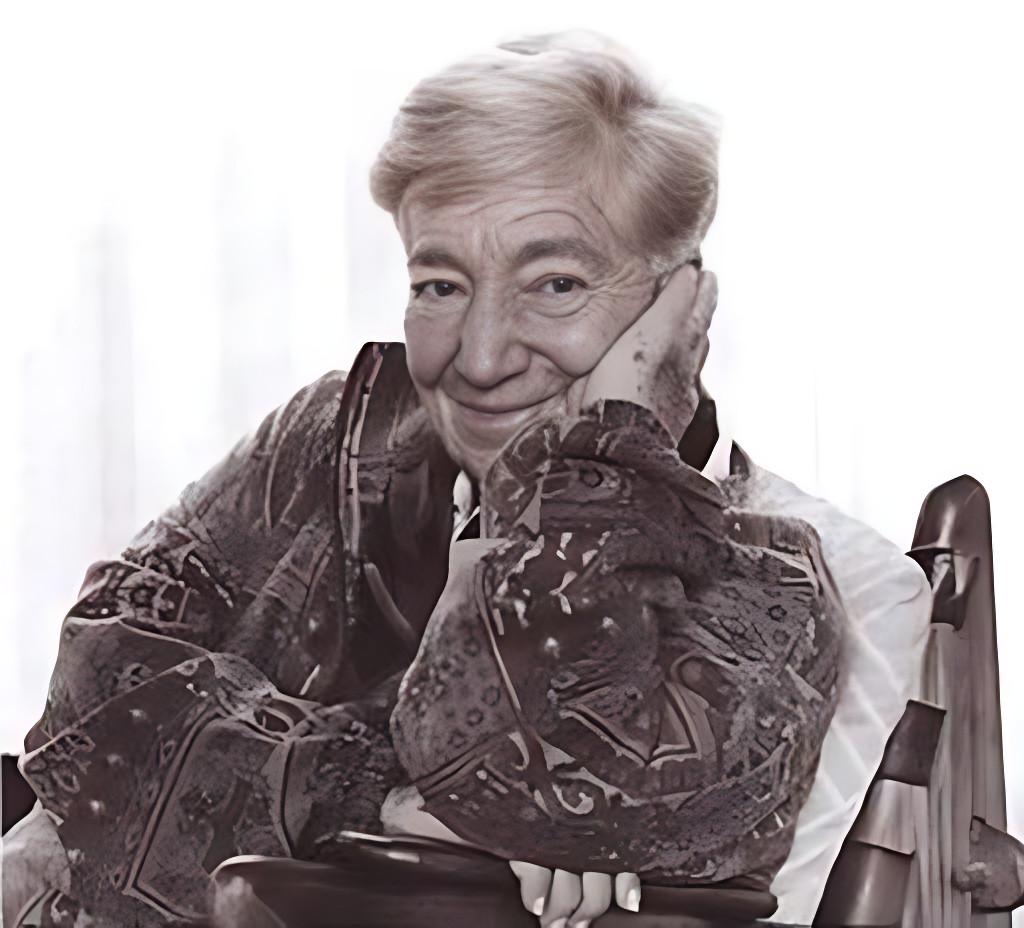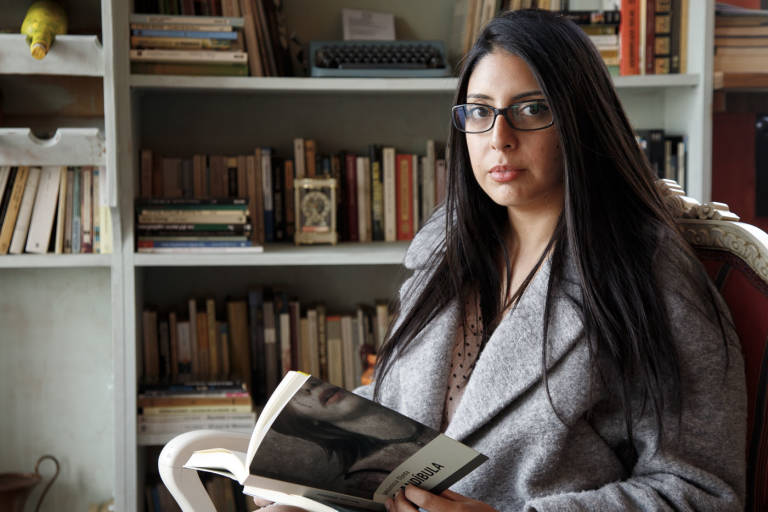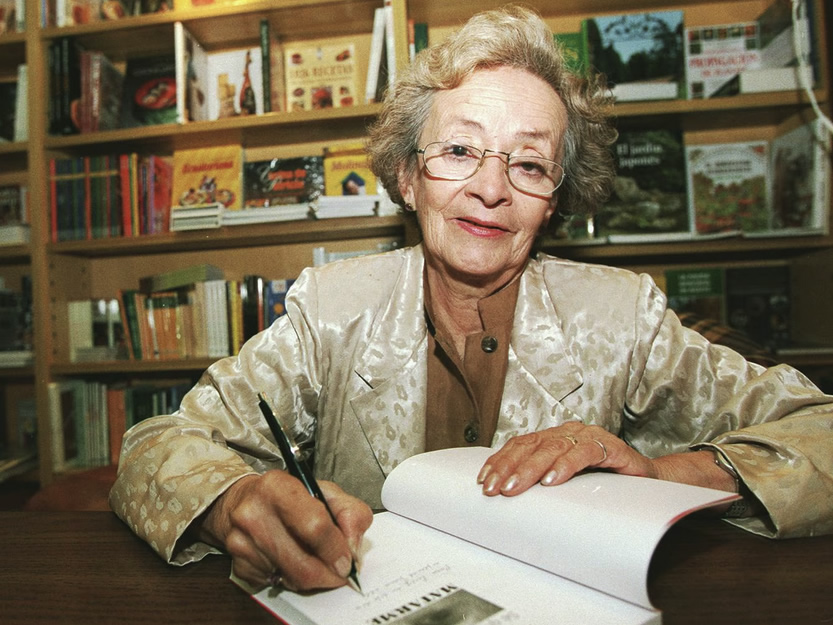Rosa Borja de Ycaza (Guayaquil, July 30, 1889 – Guayaquil, December 22, 1964) was an Ecuadorian writer, essayist, playwright, sociologist, poet, feminist, and activist. A prominent figure in Ecuadorian intellectual circles, she was a passionate advocate for women’s rights and education, founding the Legión Femenina de Educación Popular and contributing to international feminist movements. She held several key cultural and political roles, including Director of the Centro de Estudios Literarios at the University of Guayaquil and president of the Ecuadorian branch of the Unión de Mujeres Americanas. Her literary works, including plays, poetry, and essays, reflect her deep commitment to social reform and gender equality.
Continue reading “Rosa Borja de Ycaza”Category: Female writers
Sara Vanégas Coveña
Sara Vanégas Coveña (Cuenca, October 19, 1950) is an Ecuadorian poet, writer, and educator. She earned a Ph.D. in Germanistics from the Goethe Institute in Munich and has taught at the University of Munich, Bielefeld University, and currently at the Universidad del Azuay in Cuenca. A prolific author, she has published over 30 works, including poetry collections and essays. Vanégas has been honored as a Universal Ambassador of Peace and is a two-time winner of the Jorge Carrera Andrade National Poetry Prize, receiving the award in 2000 and 2004.
Continue reading “Sara Vanégas Coveña”Magaly Vanégas Coveña
Magaly Vanégas Coveña (Cuenca, 1953) is an Ecuadorian poet, short story writer, journalist, philologist and teacher. Following her studies at the University of Cuenca, she received a scholarship to study at the Pushkin State Russian Language Institute in the former Soviet Union, as well as at the Faculty of History and Philology at Moscow University. She has taught Spanish at Moscow University and Russian at Cuenca’s Ecuadorian-Soviet Cultural Institute. She is currently a teacher at the Manuel J. Calle National School in Cuenca. She is a member of the Ibero-American Poetry Academy in Cuenca. Her poems are known for their short verses and themes of absence, loneliness, nostalgia, and simple things in nature, for example: “A bird / has hung its nest / in the shadow / of a balcony” (from Espejos de la imaginación, 2000).
Continue reading “Magaly Vanégas Coveña”María del Carmen Garcés
María del Carmen Garcés is a writer, translator, journalist and historian. She was born in Latacunga in 1958. She has lived in Bolivia, Argentina, United States, Cuba and Chile. One of her best known books is Conversaciones con Pombo: Combatiente de la guerrilla del Che en Bolivia (2011), about her conversations with Harry Villegas Tamayo, aka Pombo, a guerilla fighter who accompanied the revolutionary Che Guevara in Bolivia.
Continue reading “María del Carmen Garcés”Mary Corylé
María Ramona Cordero y León (Cuenca, May 21, 1894 – Cuenca, May 7, 1976) was an Ecuadorian poet, novelist, journalist, and playwright best known by her pseudonym Mary Corylé. She gained prominence with her poetry collection Canta la vida (1933), which challenged conservative societal norms with its bold themes, including early examples of eroticism in Ecuadorian literature, as seen in her famous poem Bésame (1925). A defender of women’s rights and a prolific writer, Corylé published over 100 works across various genres and also contributed to journalism, education, and archival work, including founding the Municipal Library of Cuenca.
Continue reading “Mary Corylé”Carmen Acevedo Vega
Carmen Acevedo Vega de Idrobo (Guayaquil, July 16, 1913 – Guayaquil, April 28, 2006) was an eminent Ecuadorian poet, writer, and journalist whose literary career spanned several decades. Known for her profound and lyrical verses, Vega delved into themes of social justice, womanhood, and the human condition, making significant contributions to Ecuadorian literature and culture. Through her work in journalism and membership in various cultural and journalistic institutions, she played a pivotal role in the cultural landscape of Ecuador. Vega’s dedication to exploring complex social themes and her involvement in literary and cultural circles have cemented her legacy as a key figure in Ecuadorian literature.
Continue reading “Carmen Acevedo Vega”María Angélica Idrobo
María Angélica Idrobo (July 29, 1890 – February 26, 1956) was a prominent Ecuadorian educator, writer, and pioneering women’s rights activist. Educated in Quito and further trained in Argentina and Uruguay, she excelled in pedagogy, founding notable institutions like Liceo Ariel, Fernández Madrid, and Simón Bolívar. Alongside Zoila Ugarte, Idrobo established the “Sociedad Feminista Luz de Pichincha,” advocating for women’s empowerment. She also created schools for women, significantly contributing to female education. Her literary work, including “Homenaje a las Madres,” reflects her deep commitment to social issues. Idrobo’s enduring legacy continues to inspire in Ecuador’s cultural and educational spheres.
Continue reading “María Angélica Idrobo”Luz Argentina Chiriboga
Luz Argentina Chiriboga Guerrero (Esmeraldas, Ecuador, April 1, 1940) is an Afro-Ecuadorian writer known for her exploration of Afro-Hispanic cultural identity and the challenges faced by women. Her work spans novels, short stories, poetry, and essays, focusing on themes such as race, gender, and sexuality within patriarchal and racially segregated societies. Chiriboga’s most notable works include Bajo la piel de los tambores (Drums Under My Skin) and Jonatás y Manuela, which highlight the complexities of Afro-Ecuadorian identity and female autonomy. She has won multiple awards and her work has been translated into several languages, including English, French, and Italian.
Continue reading “Luz Argentina Chiriboga”Elysa Ayala
Elysa Ayala González, sometimes spelled Elisa Ayala González (Guayaquil, 1879 – 1956) was an Ecuadorian writer and painter. She was Ecuador’s first fiction writer and the first woman to write stories about montubios, the poor and simple peasants from Ecuador’s coast. Because of the sexist and conservative climate in Ecuador at the time, Elysa’s early works appeared mostly in foreign magazines, such as Nubes Rosadas and Revista Argentina (Argentina), Sucesos and El Nacional (Chile), Adelante (Uruguay), Hero and Cosmos (Cuba), América (the United States), and La Voz de Valencia (Spain). In Ecuador, her stories appeared in La Ilustración and some other magazines. Being fluent in English and French, she translated some of her stories into these languages. It should be noted that part of her literary work remains unpublished, including a novel about the peasant class, which was her preferred motif.
Continue reading “Elysa Ayala”Violeta Luna
Morayma Violeta Luna Carrera is an Ecuadorian poet, essayist, journalist, literary critic, professor. She was born on February 24, 1943 in Guayaquil. She is a member of various organizations, including the Press Circle of Ecuador, the Society of Ecuadorian Writers, and the House of Ecuadorian Culture.
Nela Martínez
Nela Martínez Espinosa was an Ecuadorian communist, politician, activist, feminist and writer. She was born in Guayaquil, Ecuador on November 24, 1912 and died in Havana, Cuba on July 30, 2004. She was once briefly married to the legendary Ecuadorian author Joaquín Gallegos Lara, with whom she shared a communist ideology. While their marriage ended in divorce, they remained lifelong friends. When Gallegos died in 1947 he left behind an unfinished novel titled Guandos, which Martínez completed and published in 1982. Both Gallegos and Martínez are credited as co-authors of Guandos.
Continue reading “Nela Martínez”Mónica Ojeda
Mónica Ojeda (Guayaquil, 1988) is an Ecuadorian novelist, short story writer, and poet. In 2017, she was named as one of the Bogota39, a selection of the most talented and promising young writers in Latin America (awarded every 10 years, Bogota39 is a UNESCO World Book Capital project, in conjunction with the Hay Festival). In 2018, Ojeda published the novel Mandíbula, which tells the story of a teenage girl obsessed with horror stories and creepypastas who is kidnapped by her literature teacher. The book was widely acclaimed by critics upon its publication, with the Spanish newspaper El Pais calling it “one of the novels of the season.” In 2022, Mandíbula was translated into English by Sarah Booker and published by Coffee House Press as Jawbone — a translation that has been highly praised by critics and is currently a longlist nominee for the National Book Award in the U.S. in the translation category.
Continue reading “Mónica Ojeda”María Fernanda Heredia
María Fernanda Heredia Pacheco (Quito, March 1, 1970) is a prolific Ecuadorian writer, illustrator, and graphic designer. With a rich portfolio of short stories and novels tailored for children and young adults, she’s made notable contributions to Latin American literature. One of her standout achievements is her debut novel, “Amigo se escribe con H” (2002), which garnered the prestigious Norma-Fundalectura Latin American Children’s and Youth Literature Award that same year. Since 2008, she has contributed to Hogar magazine as a regular columnist, focusing on adult audiences. Among her numerous accolades, she’s been honored with the Darío Guevara Mayorga National Children’s and Young Adult Literature Award on multiple occasions, the “A la orilla del viento” Prize, the Benny Award from the Printing Industries of America (PIA) for outstanding children’s book illustration, and most recently, the esteemed Premio Cervantes Chico (Little Cervantes Prize) in 2023. She currently lives in Lima, Peru.
Continue reading “María Fernanda Heredia”Marcela Ribadeneira
Marcela Ribadeneira (Quito, 1982) is a writer, journalist, film critic, and visual artist, renowned for her profound exploration of themes like mortality, bio-experimentation, and the normalization of terror. Educated in film directing at the Scuola Internazionale di Cinema e Televisione in Rome, her artistic endeavors span across various mediums. Ribadeneira’s notable literary work, “Golems,” reflects her unique blend of literary and cinematic insights. She is the co-founder of the publisher La Linea Negra with her husband, Eduardo Varas. Her stories and journalistic articles have been published in magazine such as: Gatopardo Ecuador, Ronda (Iberia), SoHo, Mundo Diners, Siente (Tame), In and Vamos (Latam).
Continue reading “Marcela Ribadeneira”Alicia Yánez Cossío
Alicia Yánez Cossío (Quito, September 10, 1928) is an Ecuadorian novelist, poet, short story writer, and journalist. She is considered one of the 2oth Century’s most important literary figures of Ecuador and Latin America. Since 1991 she has been a member of the Ecuadorian Academy of Language. In 1996, with her novel El cristo feo (1995), Yánez became the first Ecuadorian to win the Sor Juana Inés de la Cruz Prize (Guadalajara, Mexico), one of the most prestigious awards for female authors in the Spanish speaking world. In 2008 she received Ecuador’s highest literary award, the Eugenio Espejo Award, for her lifetime of work.
Continue reading “Alicia Yánez Cossío”
